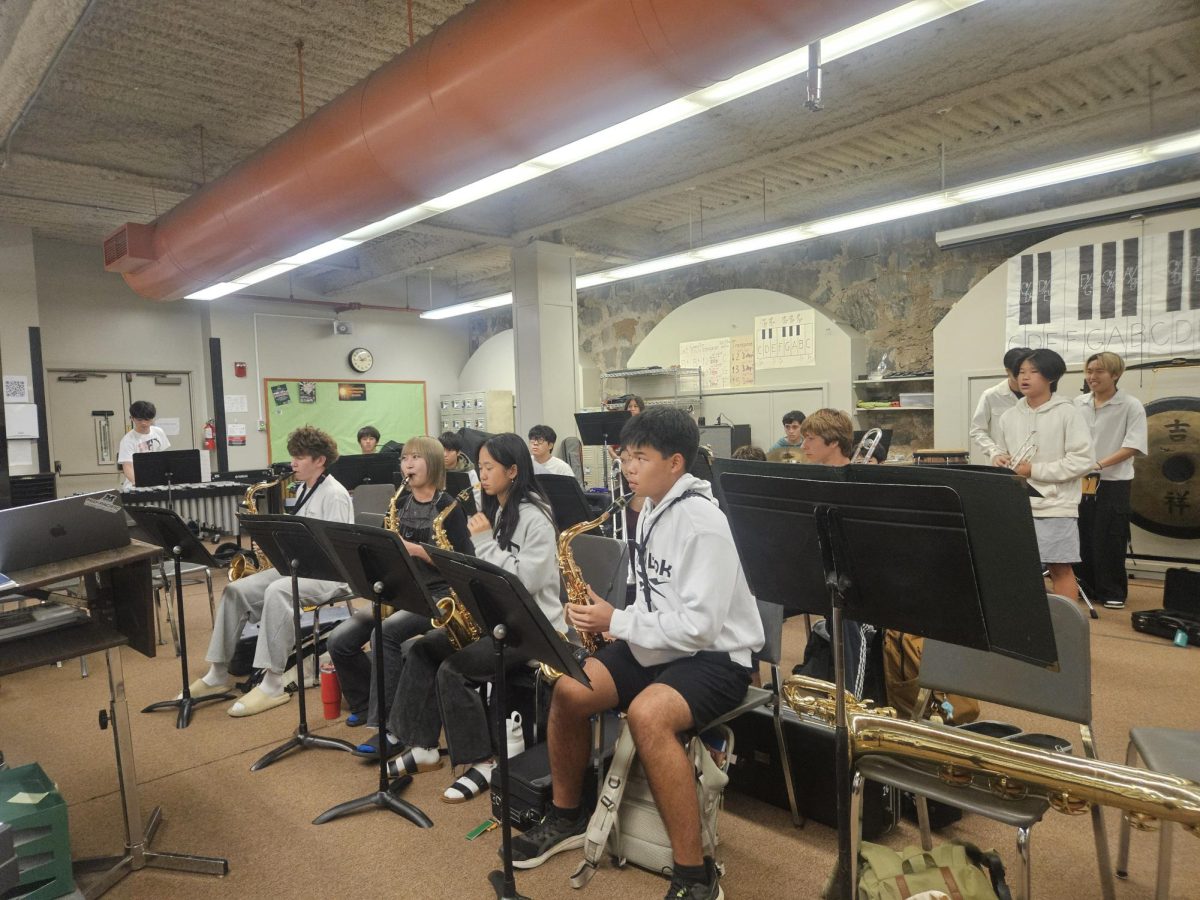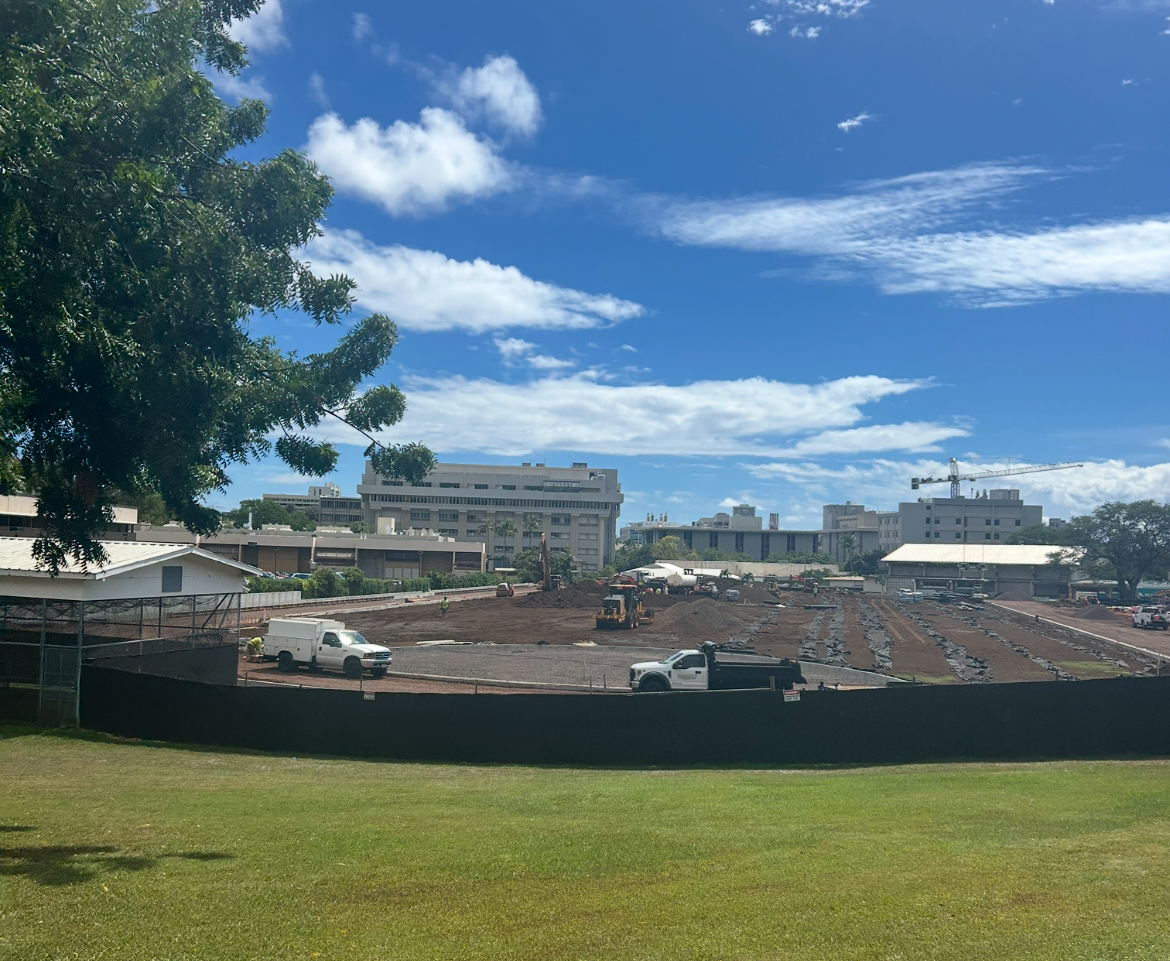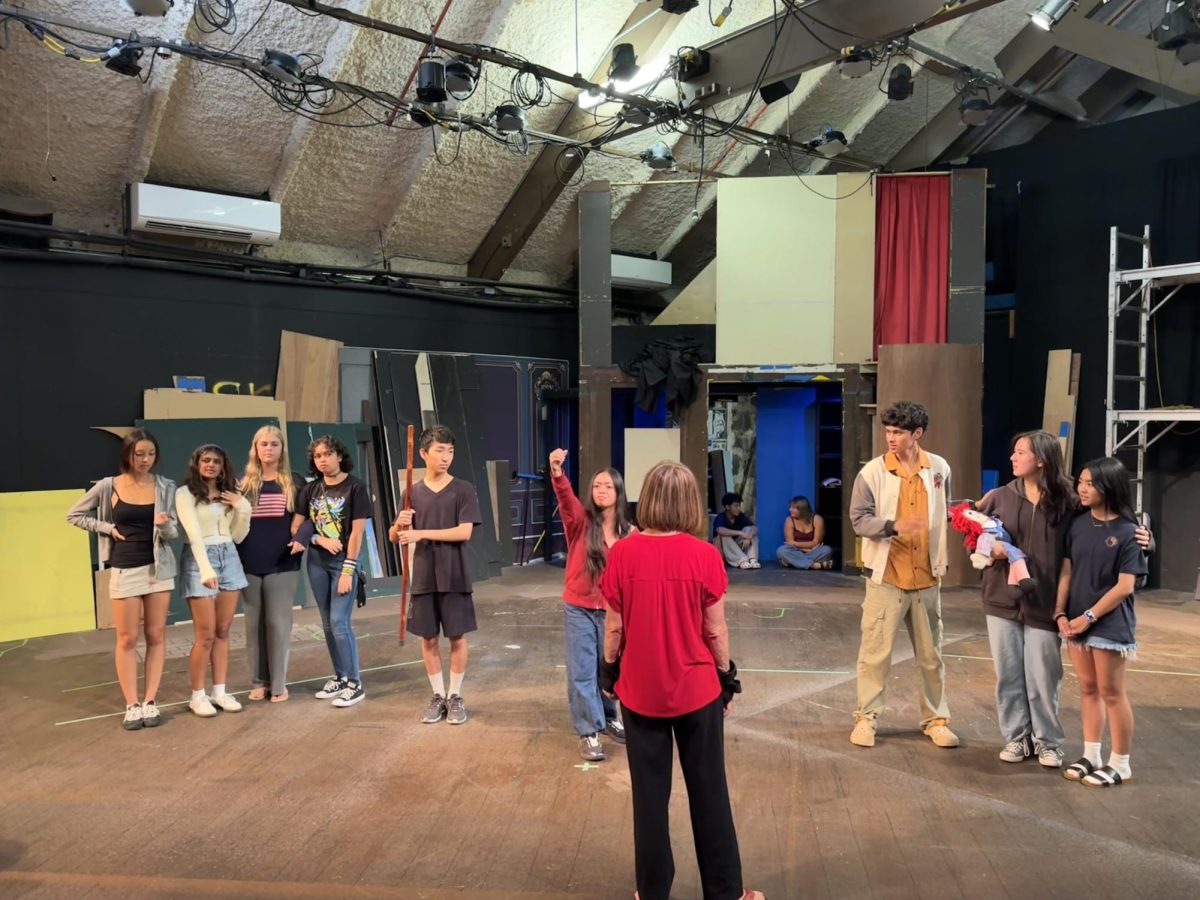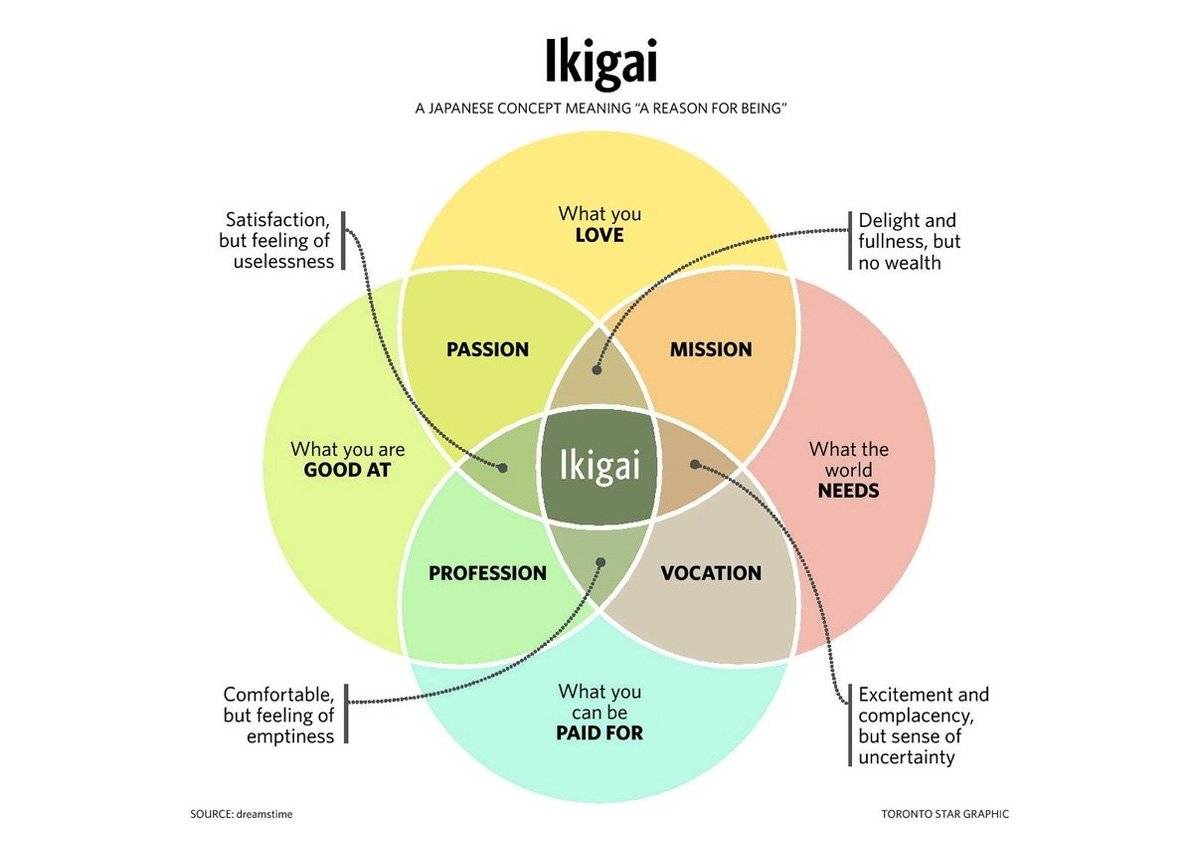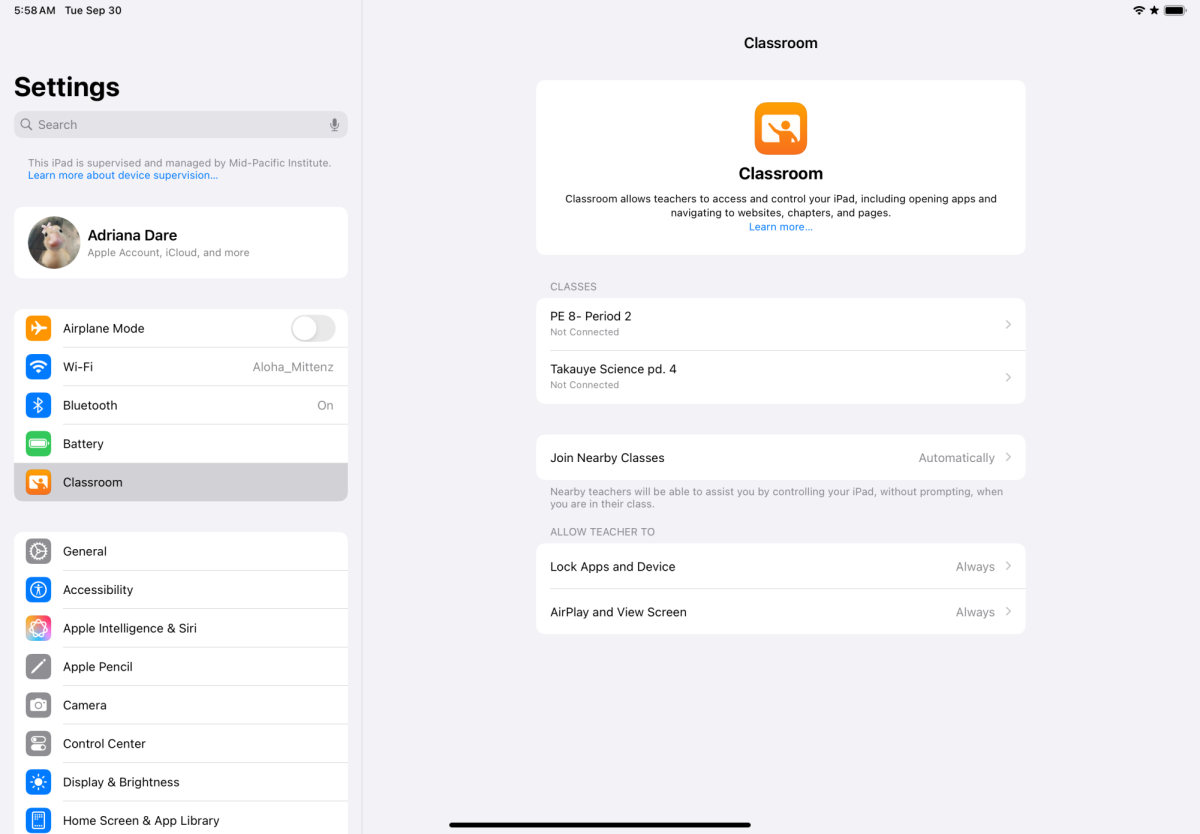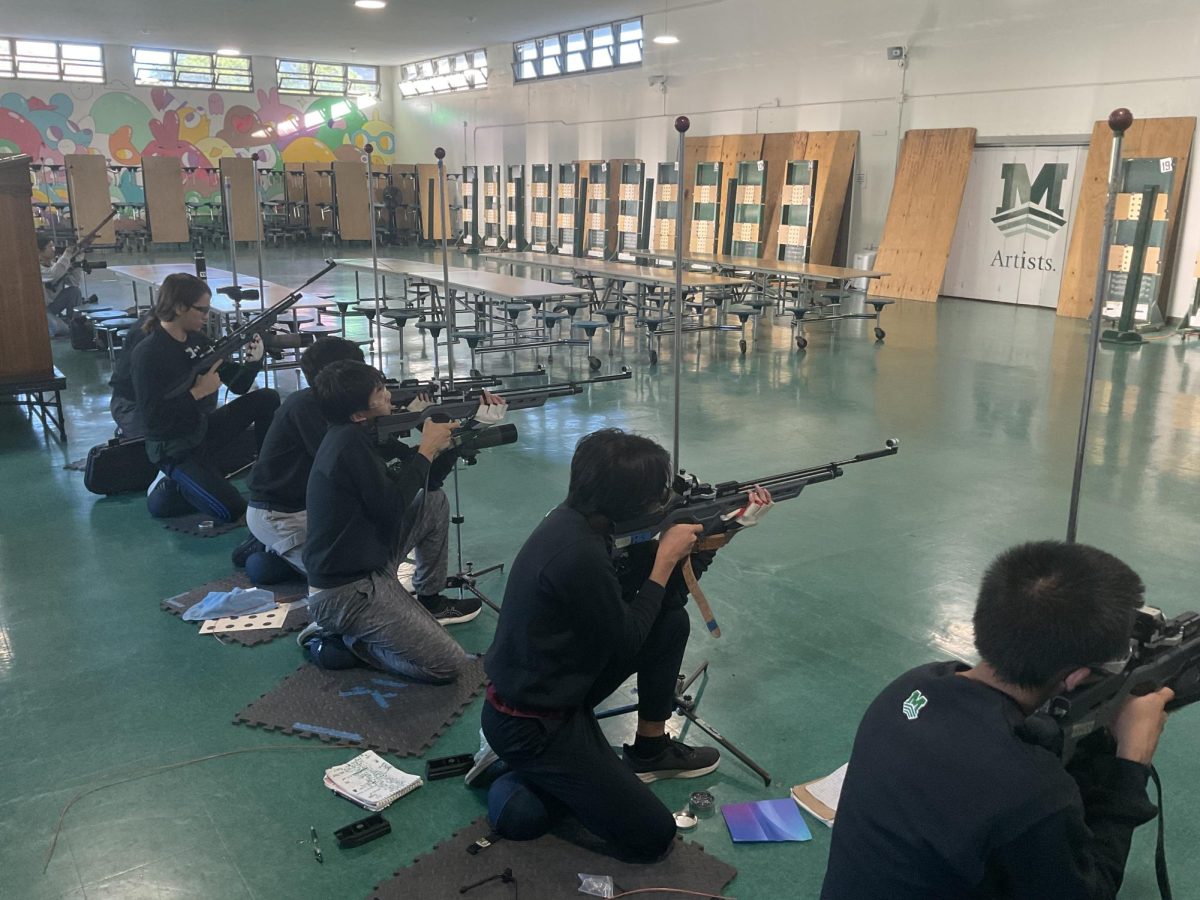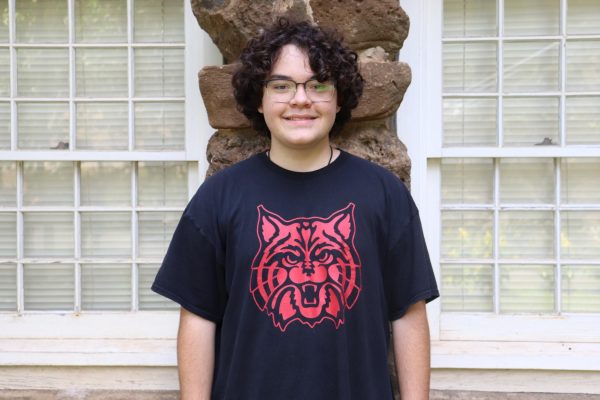At the heart of Mid-Pacific’s culture is the arts–the masterful painters, the talented theatre department, and the prestigious hula program. However, one art stands out as being relatively diminished: the music community. Since Mid-Pacific’s inception, the music community has shrunk from a formidable size to a small, but committed, group keeping the band program alive.
“We [the band] were, like, around the size of Kaiser [Band], which is massive.
And that's because a lot of people had a lot of interest in doing music,” said Senior Flautist Lisa Schroeder.
The band program originally started as a small after-school club in 1973. It eventually moved from Bakken auditorium to the current band room in 1983, and established the beginning band. It’s here that the band saw its biggest period of growth, and peaked at around 150 students across all the bands. Over time, the band has shrunk to around 70 people.
“We were good. Then, I don't know what happened… It might have been the pandemic and dying interest for the elective, but the numbers [keep] dwindling down for band class. And it's just kind of been pushed off in the corner,” Schroeder said.
Many seniors like Schroeder have a deep connection with music, but the lack of interest in the band program can deprive students of a wonderful method of expression and community.
“And then there’s jazz. It's more based on you. I feel like it's very expressional. You can express how you're feeling through the way you play the tunes, through the way you solo, all of that type of stuff. So that's why I connect with music so much,” senior saxophonist Isaiah Finell said.
Even though Finell loves band, it may not be for everyone. He, and most of those in the band community, agree that learning an instrument and growing is really a labor of love.
“When I was starting out on the tenor saxophone, it wasn't such a big part of me, and it didn't seem hard to me because you just learned the tune and played it. But when I progressed and I started caring a lot more about the music, then it became harder because you look at specific stuff like your sound, and how you're playing the music,” Finell said.
There's many ways music can enrich people’s lives, and although emotional expression is a large part of it, the band director, Eric Bloch, sees it a little bit differently.
“[Music teaches] everything. It teaches you how to recognize beauty. It teaches you how to be sensitive. It teaches you how to deeply listen. It teaches you how to connect with others and how to work as a team,” Bloch said.
In the same way team sports or musical theatre build community and foster teamwork, band helps students develop social skills that may be vital in their future. Band is often overlooked in this aspect, and while not the end all be all of social development, band is often an amazing gateway for those who may feel socially isolated.
“I think it's great for personal growth. I think it creates great people. But it could also be sports. You know, there are different vehicles for people to come together as a group and grow together and individually. I just happen to think that music is one of the best ones because I've seen it so much. And I've experienced it myself . It made me who I am and then I see it create all these other great people. So it doesn't have to be music, but music is a great way to do it,” Bloch said.
Another music educator, Dean Taba, who heads the jazz band at University of Hawai’i Manoa, talks a lot about the value of jazz music specifically.
“I think that the thing you learn playing music is how to be a good collaborator. When you're playing jazz or improvised music, you learn how to be flexible in your collaboration. In other words, what you want to do isn't always the best answer. If you can you can get good at that, that applies to pretty much any endeavor you're going to pursue,” Taba said
Of course, the music and the band aren’t perfect. Where playing with others creates a gateway for connection, it can also lead to isolation if a student isn’t able to make those connections. Isabella Delsi, a senior in jazz and advanced band, talked about that disconnection.
“In a group setting, it's kind of separate. In Advanced Band, I don't know any of the younger classmates. I have no idea [what] their name is. I don't know them like my friends, because I hang out with those people outside a band,” Delsi said.
Along with that, can also come pressure that may not be right for some people.
“But then, when there's a hard thing and I see someone else master it, I can't do it and that brings me down. It's like, ‘am I good enough or not,’ you know?,” Delsi said.
Bloch also mentioned the pressure to perform that often comes with performing in an ensemble setting.
“Every performance is like a playoff game. It's like a championship game. Because you only really get to perform you know, a few times each year. So those performances just become high stakes. They become like playoff games. And preparing the group for that,, it takes a lot of work, it takes a lot of discipline. And when you get on that stage, it's like you're in the championship and you have to play. You have to perform,” Bloch said.
The pressure, the passion, and the skills required to play music is what sets it apart from other arts. Even though the glory days of the Mid-Pacific band may be behind us, those few students who care deeply about honing their skills and playing great music inspire us all to go above and beyond in our day to day lives.
“There's an aspect of humanity that is reflected in music that is only reflected in music,” Taba said.
Nii endowed fund for instrumental music
Endowed fund for instrumental music in honor of allen Nii
https://secure.midpac.edu/giving
1991 spring concert
74 in beginning band
44 in intermediate
19 in stage band
48 in concert band
43 in symphonic band
17 in jazz band

